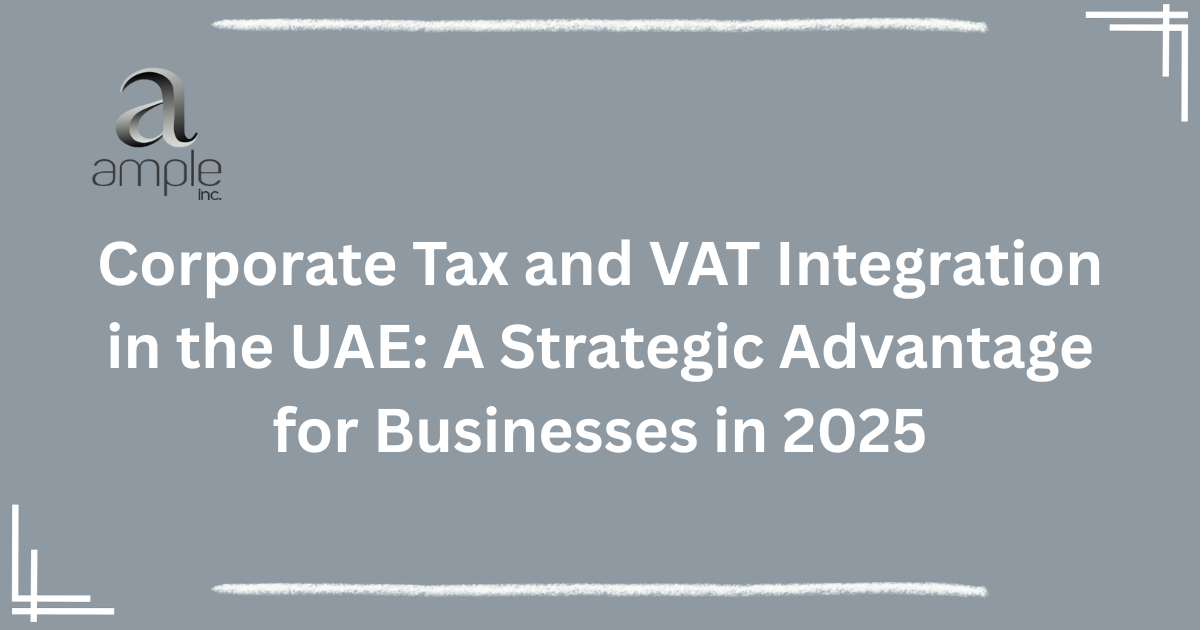The accounting financial year-end is a critical period for businesses of all sizes. It marks the culmination of the fiscal year and provides an opportunity to review financial performance, ensure compliance with regulatory requirements, and plan strategically for the upcoming year. During this period, businesses evaluate their financial health, finalize their accounts, and prepare the necessary documentation to meet tax and audit requirements. It is a time to reconcile discrepancies, close out the books, and set the foundation for future growth.
In the UAE, businesses must comply with VAT regulations and prepare for tax reporting requirements under the Federal Tax Authority (FTA). For more information on UAE government tax compliance and year-end procedures, visit the UAE Federal Tax Authority.
The year-end process goes beyond merely fulfilling compliance obligations; it also provides valuable insights into a company’s operational efficiency and profitability. It offers a clear picture of revenues, expenses, and net income, enabling business owners and stakeholders to make informed decisions. This is also the time to assess financial practices, streamline operations, and set financial goals for the next fiscal year.
While the process can be complex and time-consuming, a well-structured approach can help businesses navigate it effectively. By implementing robust strategies and leveraging expert assistance, organizations can simplify the year-end closing process and unlock opportunities for growth.
In this article, we explore the essential aspects of the Accounting Financial Year-End, including a step-by-step guide to the process, the challenges businesses often face during this time, the importance of a comprehensive year-end accounting checklist, and the value of professional assistance. We’ll also discuss how Ample can streamline the Accounting Financial Year-End process and introduce a special New Year discount on accounting and bookkeeping services to help businesses prepare for a successful financial future. By leveraging expert support and proven methodologies, businesses can navigate the Accounting Financial Year-End with confidence, ensuring accuracy, compliance, and strategic growth opportunities.
With proper planning, the year-end process can become a valuable exercise that not only meets compliance requirements but also strengthens the business’s financial position and prepares it to achieve long-term goals.

1. Year-End Closing
The Accounting Financial Year-End closing is a crucial process in financial management where businesses finalize their financial records for the fiscal year. This systematic approach ensures that all financial activities during the Accounting Financial Year-End are accurately accounted for, providing a clear and transparent picture of the company’s financial performance. The Accounting Financial Year-End process is not only essential for regulatory compliance but also serves as a cornerstone for strategic planning and informed decision-making in the upcoming year.
By successfully managing the Accounting Financial Year-End, businesses can identify areas for improvement, ensure accuracy in reporting, and position themselves for sustained growth and profitability.
Key Components of Year-End Closing
1. Reconciliation of Accounts
One of the most important steps in the year-end closing process is reconciling accounts. This involves ensuring that all balances in the books match external records, such as bank statements, vendor invoices, and customer payments.
- Bank Accounts: Cross-check bank statements with the general ledger to identify any discrepancies.
- Accounts Receivable: Ensure that outstanding invoices are recorded correctly and that overdue payments are addressed.
- Accounts Payable: Verify that all vendor payments and liabilities are accurately reflected.
2. Financial Statement Preparation
Generating key financial statements is a central part of the year-end closing process. These documents provide a detailed overview of the company’s financial health:
- Income Statement (Profit and Loss Statement): Summarizes revenues, expenses, and profits for the year.
- Balance Sheet: Displays the company’s assets, liabilities, and equity as of the fiscal year-end date.
- Cash Flow Statement: Tracks the flow of cash in and out of the business, highlighting operating, investing, and financing activities.
3. Tax Compliance
Tax compliance is a critical component of year-end closing. Businesses must review taxable income, calculate liabilities, and prepare necessary documentation to meet regulatory deadlines.
- Accurate Reporting: Ensure that all income and expenses are accurately reported.
- Deductions and Credits: Identify eligible tax deductions and credits to minimize liabilities.
- Deadlines: File tax returns and make payments on time to avoid penalties.
4. Fixed Assets and Depreciation
Reviewing fixed asset records and depreciation schedules is essential to accurately report the value of long-term assets.
- Verification: Conduct a physical count of fixed assets to confirm their existence and condition.
- Depreciation: Ensure that depreciation is calculated and recorded properly, reflecting the current value of the assets.
- Asset Disposals: Document any assets sold, disposed of, or written off during the year.
5. Inventory Valuation
For businesses that maintain inventory, verifying stock levels and their valuation is vital for accurate financial reporting.
- Physical Count: Conduct a physical inventory count to reconcile records.
- COGS: Ensure that the cost of goods sold (COGS) is calculated accurately.
- Adjustments: Account for obsolete, damaged, or unsellable inventory.
6. Closing Journal Entries
Making final journal entries is the last step in finalizing the books for the year. These entries adjust account balances to reflect accruals, deferrals, and other necessary adjustments.
- Accruals: Record expenses incurred but not yet paid.
- Deferrals: Adjust revenues or expenses that apply to the following fiscal year.
- Depreciation and Amortization: Reflect the current year’s depreciation and amortization expenses.
A thorough and systematic Accounting Financial Year-End process not only ensures the accuracy of financial records but also provides businesses with the data and insights needed to strategize effectively for the future. By addressing these key components of the Accounting Financial Year-End, companies can streamline their operations, maintain compliance, and prepare for sustainable growth in the new fiscal year.
A well-executed Accounting Financial Year-End sets the foundation for informed decision-making and improved financial performance, enabling businesses to achieve their goals with confidence and clarity.
2. Difficulties During Accounting Financial Year-End Closing
Despite its importance, the Accounting Financial Year-End closing process often presents significant challenges for businesses. These difficulties arise from the intricate nature of financial management during the Accounting Financial Year-End, coupled with the added pressure of deadlines, resource limitations, and the complexity of regulatory compliance.
The Accounting Financial Year-End demands meticulous attention to detail, ensuring accurate reporting and adherence to financial regulations. Understanding these challenges during the Accounting Financial Year-End is the first step toward addressing them effectively and achieving a smooth, error-free closing process. Proper planning and professional support can help businesses overcome these hurdles and streamline their Accounting Financial Year-End.
Common Challenges in Year-End Closing
1. Time Constraints
The year-end closing process typically coincides with holidays, business peaks, and other critical activities, making it difficult for companies to dedicate sufficient time to financial reviews and corrections.
- Tight schedules can lead to rushed decisions and overlooked details.
- Deadlines for tax filings and financial reporting add to the pressure, increasing the likelihood of errors.
2. Data Discrepancies
Mismatches between financial records, such as bank statements and internal ledgers, can create time-consuming reconciliation issues.
- Causes of Discrepancies: Errors in data entry, unrecorded transactions, or delayed postings.
- Resolving these discrepancies requires meticulous reviews, which can delay the closing process.
3. Complex Tax Regulations
Tax laws and regulations are often complex and subject to change, making compliance a daunting task for many businesses.
- Small and Medium Businesses (SMBs): SMBs, in particular, may struggle to keep up with regulatory updates and identify applicable tax credits or deductions.
- Errors in tax compliance can lead to penalties, audits, or missed opportunities for tax savings.
4. Inventory Management
Accurately managing and valuing inventory is one of the most labor-intensive aspects of year-end closing.
- Physical inventory counts can be disruptive and require significant manpower.
- Discrepancies in inventory records can lead to incorrect valuation of cost of goods sold (COGS) and affect financial statements.
5. Software Limitations
Outdated or inadequate accounting software can be a major hindrance during the year-end process.
- Limited functionality may prevent the automation of key processes like reconciliations and financial statement generation.
- Lack of integration with other systems, such as inventory management or payroll, can create data silos and inefficiencies.
6. Resource Constraints
Many smaller businesses lack the in-house expertise or resources needed to manage the complexities of year-end closing.
- A shortage of skilled accounting personnel can lead to delays and errors.
- Business owners often juggle multiple responsibilities, further straining available resources.
7. Audit Readiness
Preparing for external audits or regulatory inspections adds another layer of complexity.
- Ensuring that all financial records and supporting documentation are audit-ready requires meticulous organization.
- Non-compliance or discrepancies identified during audits can damage the company’s reputation and financial standing.
Overcoming Year-End Closing Challenges
Successfully addressing these challenges requires a combination of proactive planning, robust tools, and professional expertise:
- Proactive Planning: Start preparing for the year-end early by organizing financial records, conducting interim reconciliations, and setting realistic timelines.
- Efficient Tools: Invest in modern accounting software that automates key processes and provides real-time insights.
- External Expertise: Partner with accounting professionals or firms to ensure accurate financial reporting, tax compliance, and audit readiness.
By tackling these Accounting Financial Year-End challenges head-on, businesses can transform the year-end closing process into a streamlined and stress-free operation. A well-executed Accounting Financial Year-End not only ensures compliance and accuracy but also paves the way for improved financial performance and strategic growth.
By prioritizing organization and efficiency during the Accounting Financial Year-End, businesses can gain valuable insights, strengthen their financial foundation, and confidently plan for a successful year ahead.
3. Year-End Accounting Checklist
An Accounting Financial Year-End checklist is a valuable tool that ensures businesses can organize and streamline the Accounting Financial Year-End closing process efficiently. By following a structured list of tasks, businesses can simplify the Accounting Financial Year-End, eliminate oversight, and reduce errors. A well-prepared checklist helps finalize accounts accurately, ensuring compliance with regulatory standards, smooth audits, and effective strategic planning.
Proper execution of the Accounting Financial Year-End tasks lays the foundation for financial clarity and business growth in the new fiscal year. Trust in a structured approach to make your Accounting Financial Year-End seamless and stress-free.
Below are the essential steps for an effective year-end close:
1. Organize Financial Records
Having well-organized financial records is the foundation of a smooth year-end close.
- Key Tasks:
- Gather all financial documents, including invoices, receipts, bank statements, payroll records, and tax documents.
- Use accounting software or cloud storage systems to systematically store and categorize records.
- Ensure documents are labeled and dated correctly for easy retrieval during audits or reviews.
- Why It Matters:
Organized records improve accuracy, save time, and ensure compliance with audit requirements and regulatory standards.
2. Reconcile Accounts
Reconciling accounts ensures that financial records accurately reflect all transactions.
- Key Tasks:
- Compare bank statements with the general ledger to ensure all deposits, withdrawals, and transfers are recorded.
- Reconcile accounts receivable and payable to confirm outstanding invoices and liabilities are accounted for.
- Identify discrepancies and resolve them promptly.
- Why It Matters:
Regular reconciliations minimize errors, prevent fraud, and provide a clear picture of cash flow.
3. Review Fixed Assets and Depreciation
Accurate reporting of fixed assets and depreciation is crucial for financial statements.
- Key Tasks:
- Conduct a physical count of fixed assets, including equipment, vehicles, and machinery.
- Verify that all acquisitions and disposals are recorded.
- Review depreciation schedules to ensure depreciation expenses are accurately applied.
- Why It Matters:
Properly maintained fixed asset records reflect the business’s true value and help in tax planning.
4. Verify Inventory Records
Inventory verification ensures that stock levels are accurate and valued correctly.
- Key Tasks:
- Perform a physical inventory count and reconcile the results with accounting records.
- Identify inventory that is obsolete, damaged, or unsellable and make necessary write-offs.
- Ensure accurate valuation of cost of goods sold (COGS).
- Why It Matters:
Accurate inventory records directly impact profitability, financial statements, and tax calculations.
5. Update Payroll and Employee Records
Ensuring payroll and employee records are accurate is essential for compliance and employee satisfaction.
- Key Tasks:
- Verify employee details, such as tax identification numbers, benefits, and contact information.
- Check for unpaid wages, bonuses, or reimbursements.
- Ensure payroll taxes are calculated and reported correctly.
- Why It Matters:
Updated records enhance compliance with labor laws and tax regulations while maintaining trust with employees.
6. Prepare Financial Statements
Financial statements summarize the company’s financial performance and position over the fiscal year.
- Key Tasks:
- Generate an income statement to detail revenue, expenses, and net profit.
- Prepare a balance sheet to outline assets, liabilities, and equity.
- Create a cash flow statement to track cash movements in operating, investing, and financing activities.
- Why It Matters:
These reports are critical for stakeholders, investors, and decision-makers to assess the company’s financial health.
7. Ensure Tax Compliance
Tax compliance is a major focus during the year-end close to meet regulatory deadlines and avoid penalties.
- Key Tasks:
- Review taxable income to ensure accurate reporting.
- Maximize deductions and evaluate eligible tax credits, such as research and development (R&D) or energy incentives.
- Prepare for tax filings by organizing relevant documents and calculating liabilities.
- Why It Matters:
Proper tax planning reduces liabilities, minimizes audit risks, and ensures adherence to regulatory requirements.
By systematically addressing these Accounting Financial Year-End steps, businesses can ensure a smooth year-end close. This comprehensive checklist not only simplifies the Accounting Financial Year-End process but also strengthens financial reporting accuracy, enhances compliance, and prepares the organization for the opportunities and challenges of the upcoming fiscal year.
A well-structured Accounting Financial Year-End approach empowers businesses to identify areas for improvement, streamline operations, and set a strong foundation for sustainable growth in the new fiscal year.
4. Ample Can Help You in Year-End Closing
Ample specializes in providing comprehensive Accounting Financial Year-End services tailored to meet the unique needs of businesses across industries. As the Accounting Financial Year-End approaches, it is essential to ensure accurate reporting, compliance with regulatory standards, and timely completion of financial statements. With extensive experience and a team of highly qualified experts, Ample streamlines the Accounting Financial Year-End process, helping businesses finalize their accounts seamlessly and stress-free.
Our meticulous attention to detail ensures that your Accounting Financial Year-End closing is accurate, efficient, and aligned with your financial goals. Trust Ample to guide your business through a smooth Accounting Financial Year-End.
The year-end closing process can be overwhelming, but Ample offers the expertise and tools to simplify it, allowing you to focus on running and growing your business.
Here’s how Ample can assist:
1. Professional Expertise
Ample’s team of certified accountants is equipped with the latest knowledge of financial regulations and industry best practices.
- Personalized guidance ensures your financial performance is optimized.
- Expert strategies help minimize tax liabilities while maintaining full compliance.
- Thorough reviews of financial records ensure accuracy and reliability.
2. Advanced Tools
Ample leverages cutting-edge accounting software to automate and streamline complex tasks.
- Automated reconciliations reduce manual errors and save time.
- Advanced depreciation calculations and financial report generation provide precise insights into your financial position.
- Real-time data analysis enables informed decision-making.
3. Customized Solutions
Recognizing that no two businesses are the same, Ample provides tailored accounting solutions to match your specific operational needs.
- Small businesses benefit from cost-effective and scalable services.
- Larger enterprises receive comprehensive and detailed support for complex financial operations.
- Industry-specific insights ensure your financial management aligns with market demands.
4. Tax Planning and Compliance
Tax compliance is one of the most challenging aspects of year-end accounting, but Ample simplifies it for you.
- Identifies tax-saving opportunities, such as deductions and credits, to minimize liabilities.
- Ensures timely and accurate tax filings to avoid penalties.
- Expert guidance through intricate tax scenarios helps maximize savings while staying compliant.
5. Audit Preparation
Preparing for external audits can be daunting, but Ample ensures you are fully prepared.
- Organizes all necessary documents and ensures compliance with regulatory standards.
- Resolves discrepancies to present accurate and transparent financial statements.
- Provides support during the audit process, reducing stress and saving time.
6. Inventory and Asset Management
Ample helps businesses ensure accurate inventory valuation and fixed asset reporting.
- Verifies inventory records and reconciles them with accounting systems.
- Assists with fixed asset reviews, including physical counts and depreciation schedules.
- Identifies obsolete or damaged inventory for proper write-offs, ensuring clean records.
Why Choose Ample for Your Year-End Accounting?
By entrusting Ample with your year-end closing tasks, you gain more than just accounting support. You receive a strategic partner who ensures:
- Improved financial accuracy and transparency.
- Reduced stress from handling complex year-end processes.
- More time to focus on strategic planning and growth initiatives.
Ample’s commitment to excellence, combined with advanced tools and a personalized approach, ensures your business is well-prepared to transition into the new financial year with confidence.
Whether you’re a small business aiming for efficiency or a large enterprise dealing with complex financial structures, Ample has the expertise, resources, and dedication to deliver unparalleled support. Partnering with Ample allows you to leave the complexities of financial management to experts and focus on what truly matters to your business growth and success.
5. Ample is Offering New Year Discount for Accounting and Bookkeeping
Ample: Your Trusted Partner for Year-End Closing
Ample specializes in delivering comprehensive accounting and bookkeeping services designed to meet the unique needs of businesses. With years of experience and a team of certified experts, Ample ensures that the year-end closing process is streamlined, accurate, and stress-free. By choosing Ample, businesses gain access to professional guidance, cutting-edge tools, and tailored solutions that simplify financial management and drive growth.
How Ample Can Assist
- Professional Expertise
Ample’s team of certified accountants stays up-to-date with the latest financial regulations and industry best practices.
- Offers personalized advice to improve financial performance.
- Optimizes tax planning strategies to minimize liabilities and maximize savings.
- Advanced Tools
Ample utilizes state-of-the-art accounting software to streamline complex processes.
- Automates tasks like reconciliations, depreciation calculations, and report generation.
- Provides real-time insights to help you stay informed about your financial position.
- Customized Solutions
Ample caters to businesses of all sizes, providing bespoke solutions to fit their operational needs.
- Adapts services to small businesses with limited resources or large enterprises with complex financial structures.
- Tax Planning and Compliance
Tax compliance can be daunting, but Ample simplifies it by:
- Identifying tax-saving opportunities through thorough reviews.
- Ensuring accurate filings and guiding businesses through complex tax scenarios.
- Audit Preparation
Ample assists in ensuring that all financial records and supporting documentation are audit-ready.
- Organizes documents systematically.
- Resolves discrepancies to build confidence in your financial reporting.
- Inventory and Asset Management
Accurate reporting of inventory and fixed assets is critical during year-end. Ample provides:
- Support for inventory valuation and verification.
- Expertise in fixed asset reviews to ensure compliance and accurate depreciation schedules.
Why Choose Ample?
By entrusting your year-end closing tasks to Ample, you can:
- Save time and focus on strategic business decisions.
- Ensure compliance with regulations, reducing risks of penalties.
- Leverage professional insights to enhance your financial management.
Ample’s New Year Special Offer
To celebrate the New Year and support businesses in achieving their financial goals, Ample is offering an exclusive deal. The accounting financial year-end is a crucial time for businesses to ensure compliance with UAE VAT regulations, finalize their books, and strategically plan for the future. Ample provides expert accounting and bookkeeping services to help businesses meet tax obligations and achieve financial clarity.
For more details, visit Ample and let us assist you in navigating your year-end accounting needs seamlessly.
- Subscribe for just 99 AED and receive:
- Free Corporate Tax Registration
- Free VAT Registration
- Free Consultation for Accounting and Financial Compliance Services
Ample’s commitment to providing expert financial services and unbeatable value ensures your business is prepared for success in the year ahead. Partner with Ample to simplify your accounting, stay compliant, and unlock your company’s full potential.



